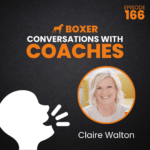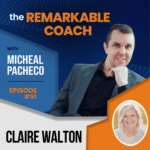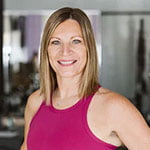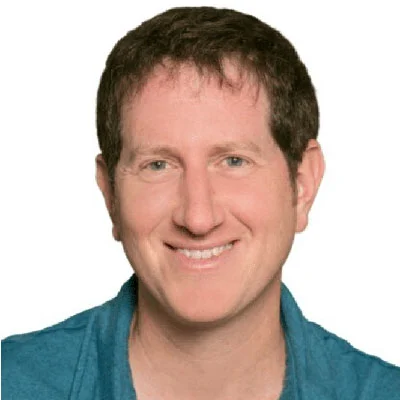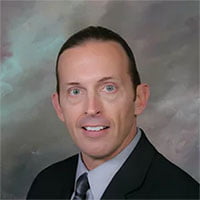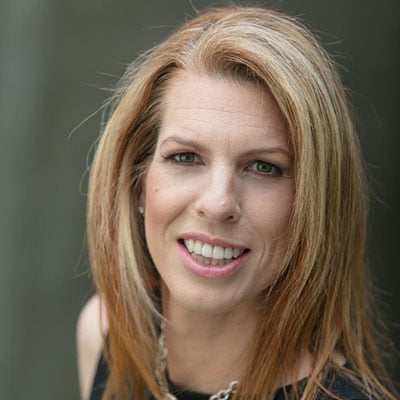Kevin Stafford 0:02
Hello, everyone, and welcome to another episode of the conversations with coaches podcast. I’m your host, Kevin, it is my morning, but it is Claire Waltons, late afternoon, early evening, and she’s in the UK when we’re recording. So I might be a little more caffeinated than usual, but I promise I will keep it reined in and let Claire do most of the driving, because I’ve already had a chance to chat with her a little bit. And she’s awesome. I’m gonna let you know that you’re gonna find that out for yourself, though in a minute. Claire is a leadership and high performance coach, coaching executive and C suite leaders and their teams to achieve peak performance with a track record as an executive director and 25 years of experience coaching the C suite leaders and their teams. She is now also the author of the Amazon Best Seller. Let me see if I’m pronouncing this right super neuro you that correct. Super neuro you Slynt, which was published just last year. Claire, I’m, as you could tell, I’m already very excited to talk to you. Thank you for taking some time this week to come on the pod and chat with me.
Claire Walton 0:57
Oh, you’re welcome, Kevin.
Kevin Stafford 0:59
So you have clearly you’ve had a long journey to get from where you started to where you are now. So I like to ask this as kind of like a two part question. Because I find that people people have very similar but also very unique answers. How did you This is like your superhero origin story, like how did you find out discover how were you told how did you find the word coach? You figure that out about yourself? If that’s what you wanted to be? Or maybe you already were? And how did that realization discovery move into the coaching business you have today?
Claire Walton 1:31
Okay, that’s great. So I started my first career was in HR, human resources, whatever you want to call it these days, it’s called all sorts of different things, of course. But it was HR back then. And, and we were trained to be coaches. So I didn’t all of a sudden have some realization, you know, we were trained as part of our roles back in my early 20s, to do coaching, just as as part of the day to day, so not as a professional coach. But, you know, in our relationship with our managers that we were working were the leaders that we were working with, we were expected to be coaching them. So in other words, asking them lots of great questions, to get them to think in order for them to solve problems for themselves. In the simplest of terms, that’s what it was back then. And I absolutely loved it interesting was that some of the people that I would, you know, turn a coaching conversation to a coaching conversation with, they wouldn’t love it so much, because they weren’t necessarily expecting this. Now, you’ve got to bear in mind, Kevin, that I am going back several decades. Back there, you know, people were used to being managed, they wouldn’t have been used to being led so much. They were used to be managed, told what to do directed, and so on and so forth. And I always remember there was a specific lady that worked for me, called Heather Lord. And I remember she, she called me this one particular day. And she’s she’s told me about it since coming this particular day. And she she outlines this whole situation that she’s in, and I just back it off, but it back to her and I say, so. What do you think you should do? And she’s like, well, I don’t know. That’s why I’m bringing you. So then I just same question, change the tone here. But what do you think you should do? Well, well, I don’t know that. She’s getting annoyed at me that you know that that’s why I’m calling you. I say, Okay, what do you think you should do? You’re just basically asked the same question three times, which is very annoying coaching thing. She wasn’t expected to be coached when she calls, you know, for me to solve her problem. But eventually, she gave in. And she started to work it through. And I coached her through that. I met her 20 years after this, which is probably still more than 10 years ago from today. And she said to me, she said, Oh, my, that was such a big lesson for me. And it made such a difference, because I stopped calling you. I felt that, you know, you trusted me to make the right calls and thinking things through for myself and my confidence developed. And then I started doing that with others, and then now empowered them and so on. You know, we coaches can have a huge ripple effect on people. I had no idea at the time that that’s what I was doing. But yeah, that’s where it all started. And I’ve, I’ve continued but coaching internally for many years. You know, I was the HR director of many large businesses over here in the UK. And the coaching that you do internally can be very effective. But I knew that the coaching I could do externally as a professional coach would be so much more effective for a number For different reasons, first of all, it has become my profession. And as we were talking before we started recording, it’s, it’s my passion, it’s, I can’t do it, whether I’m in, you know, inverted commas at work, or just on a Saturday afternoon with a friend, you know, I literally cannot help myself to do this. So it’s my passion, it’s, it’s what I do professionally. So, you know, I do so much education around what I do, I would like to think I had a reasonable amount of expertise. When, you know, as an HR director, you’re doing coaching as part of the job. And, and, and actually, you’ve got loads of other skills that you have to, you know, have, as, you know, quite core day to day skill set, which I’ve been able to drop now, which is fantastic. And then the second thing is the relationship is very different when your external. So that relationship now as the external, I almost find immediately having when people choose to have a call with me to discuss coaching, they allow me into their life, they allow me into their head, they allow me into their unconscious, for us, to me for some reason, to help them explore all of that and come out all the better for it. So. So yeah, it’s my coaching has changed over several decades, and now is pretty much my life’s work.
Kevin Stafford 6:34
I can’t tell you how many jumping off points I got from you talking just for the last couple of minutes, I was like, in my head, I’m just like, oh, my gosh, I can, I can already tell it’s going to be like ripping like the band aid off the skin to hang up on this call. But the one thing that I love about the way you expressed your coaching journey, there is that talking about that externality, which I feel like it’s so I don’t know if it’s, I think it’s very well understood by coaches. But I don’t know if it’s very well understood by the people who are coached. Because I think often about that sort of, quote unquote, intimacy of a stranger, where it’s like how sometimes someone who you just met, you could be your complete self worth, and you’ll share things with that person, whoever they happen to be, whatever the context, you happen to have met them in, that you haven’t shared with family, with friends, with loved ones, with parents with people who have been in your life who know you better than anybody else. And it’s often just kind of like, it’s acknowledged as a almost a quirk of the human condition. But really, it’s very foundational, because that externality that a coach can bring with the tools of intimacy with the tools of empathy that can build that bridge. But you don’t bring the baggage, you don’t have the calluses built up, you don’t have the expectation set a lot of people, once they get to know you, they kind of subconsciously, for the most part, they put little walls in place to kind of understand how to interact with you in the way that they want to. And they just kind of build up these little calluses, walls, guys, everything’s kind of already built, a coach can come in with those expert tools of empathy and connection with all the professional experience of understanding how this works in a professional setting, even though you’re being very personal and intimate with some of the things you’re talking about. And they leverage that externality to allow someone to truly express what they really need to express and truly engage with what they may be really need to engage with those. And that’s the other thing too, that love that insistence on the question, like, I’m just going to ask it again, I’m gonna put put the emphasis on a different syllable. And you can ask to you again, and you’re gonna get annoyed with me. But you’re gonna understand why later, and you’re gonna love me for it. And I just I love that you’ve that you basically identified that really early, and have just like grown and evolved with that throughout your coaching career. Please go talk, talk talk.
Claire Walton 8:40
Well, that point that you just made there about the one question as three times slightly different. I think all too often, an inexperienced coach is looking for some really complex thing that they can do with their client to make a real difference. And one of the things that I’ve learned over the years of both internal and now, you know, professionally coaching externally, which I’ve been doing for many years as well, actually simple things. It’s everything that you mentioned in terms of the relationship and the tools and the techniques of a really good coach around that that empathy, that ability to to demonstrate absolutely no judgment whatsoever of that person. You may not challenge what the person is saying, and I will challenge a lot and actually, it’s one of the things that my coaching clients, if they’re referring me to some referring a recommending me, they will say I’m quite challenging. Yeah, I am quite challenging, but I’m not judging the person. And I think that they’re two very different things. I might challenge what they say. In fact, I literally put the call down to somebody two minutes before I came on with you. And and it was someone I not actually had a call All righty folks, that chemistry time call, and in that I was quite challenging of some of the things that they were saying, but not judging them as a person. And they’re two very different things. And I think, you know, that’s, that’s pretty important for us coaches.
Kevin Stafford 10:15
It really is because it’s so it’s so frightfully easy for most human beings, myself very much included, to accidentally internalize a criticism, even if it’s not like, even if it’s actually not really a criticism, just something that could be interpreted as one and just bring it inside and put it in my heart. And then like, not realize I’ve done this, and all of a sudden, I’m criticized, I’m vulnerable in a way that I’m a little bit scared. And I was like, my, my, all my senses, and my thoughts get flooded with that sensitivity. And that fear that I basically grabbed and took and made into that myself, even though it was maybe maybe it wasn’t even a challenge. Maybe it was just a night. Good question. Good questions are like, inherently like you feel like a little pressure on your skin, when someone asked you a good question. And learning how to and being taught how to acknowledge a good question. And not like do any of the weird, you know, damaged math that we can sometimes do with our heads and our hearts and turn it into something else. Just let that question, apply the the needed pressure, you know, and then ask it again, I know, that’s why I love about the simple re asking the question, I’m not, I’m not here to like, apply the magical formula, and you know, carry the two to the nth power, and then all of a sudden, bam, you’re gonna have an epiphany. Every once in a while stuff like that will happen. But usually, it’s just the insistence on asking the simple questions and listening to the responses with care. And I know it doesn’t sound fancy, it doesn’t sound like some world changing thing. But it is, in my experience, quite frankly, it is world changing. It is life changing. And I love that. I love I love insistence, I have a feeling I’m gonna have to work the insistence of your challenge into something into the podcast title, because I feel like that’s just that’s such a key to the power you can have as a coach and I, I know I’m mostly just responding to you instead of asking follow up questions which I’m I have bad podcast your brain now. But I’m just so fascinated by how this works, and how how simple it is to see but then how you can spend your whole life understanding how it works, and how to how to help people with it.
Claire Walton 12:06
But now, but let’s just underline this point. Because it’s only actually in this conversation, I’ve only really thought about this with absolute clarity now is in order to be incredibly challenging in a way that inspires action. That’s what we’re after really, aren’t we we’re not challenging for the sake of challenging, but wanted to inspire action. It’s paramount that we don’t judge and the person doesn’t feel judged. And actually, I just realized how darn good I am at this stuff. Because I just realized that is doing these days, I can ratchet up dial up that challenge to inspire action, which creates change. Because I’m so much better than I ever was. And it takes years. And I’ve been doing this for years now at building a relationship pretty quickly, where there’s no judgement. Now what I’m thinking, as I’m speaking, Kevin is, what exactly am I doing to create that part of it?
Kevin Stafford 13:15
comes naturally now you have to figure out how to like codify it.
Claire Walton 13:20
Exactly. But that’s really important, isn’t it? Because if I go back to when I mentioned to you, when I first was trained to do coaching, we were doing that this was in my early 20s. And we were doing that as part of a cultural change in a huge organization over here in the UK. It’s a big supermarket organization that actually Walmart eventually took over. And and we were we were using the coaching to develop the people who were running the stores, the supermarkets. And as part of that exercise, one of the things that culture change exercises, well, one of the things that we were doing is trying to help those. It was like the top 5% of our supermarket general managers to help them to codify what it was that they were doing that made them successful that you just reminded me of that that was running along the side of things. And again, something that I’ve taken away from that 30 years on is helping myself and my clients codify what is helping them achieve success as they go through the coaching journey. And so what we do as part of that, and I’m insistent upon is some form of self reflection where they’re writing their reflections down. So whether it be journaling, or it could be just freehand journaling, which is what I personally prefer. Or it might be very specific questions that we might agree in the various bespoke for them. Or there could be contemplative things that I send out as well. But I absolutely insist on that self reflect because that’s how they start to not just see the change in themselves, but really identify with absolute specify. That’s another word, I can’t say, specificity. Down clerical help, yeah. So they can really understand exactly what it is that they’re doing, and then do more of it, and share it with other people. We talked about ripple effect, before we started recording, you know, if you, if you can codify what you’re doing, you’ll do more of it, and you’ll do it better yourself, you’ll find more opportunities to do it in different situations. But you also want to teach it as well, and then you get a ripple effect.
Kevin Stafford 15:36
And that’s how that’s that key component into converting all of this all this work into action. Because again, we’re not just doing this for our health, I mean, we are doing it for our health, that’s a cheeky turn of phrase, but it is for our health, but we find that health in the action. And part of that action is in the ability to share it I often find myself thinking about how coaches are excellent translators that kind of come in and kind of teach you your own language, add a little bit of insight LS definitely, definitely a lot of insight and some guidance. But ultimately, you’re learning how to speak your own language, well, and also do some of that same translation work. So not only do the do the effects that do the not only do the effects that coaching has on you just radiate out from you naturally based on the way that you perform differently and better and engage differently and better, and are more your best self. But you also learn a little bit how to do that translation work, how to codify it, and how to put it down in a way that is not only continuing to grow your own understanding, but also becomes accessible to other people around you. And and that’s really why I feel like it’s what makes coaching almost like addictive is you see that like cascading effect like ripples in the water, where you’re just like, you know, a chain and a chain and a chain and a chain and you’ve got like people who you know, 10 Degrees of Separation away from you who have with CertainTeed been positively impacted, impacted by your coaching, and you’ll never meet them, you’ll likely never bump into them a day in your life or a day in theirs. And yet, you will have had a positive effect on them. And you get to know that that’s, it’s no wonder you have the passion for this work. Through,
Claire Walton 17:08
absolutely, but it’s also, I choose to imagine that that is the impact that I am having, I may not be having that impact, let’s say I’m not having that impact, but I choose to imagine that that’s the impact that I’m having. Because in doing so, it makes me want to, you know, Master, you know, my skills at what I do, makes me want to do it, we spoke again, before we started to record, you know, loving the work and, and actually sometimes, you know, coming in my office on a Saturday or a Sunday to write content, for example, because I you know, write quite a lot of content as well as do the coaching, you know, I want to share things with people. Why do I want to share things with people, because I imagine that it’s going to have a really big impact, whether it does or it doesn’t. But it’s hugely motivational for me to to imagine that it does. Now thankfully, I do have enough testimonials to know, but it does actually have an impact as well. That but it’s always my starting points. And again, it’s one of those things that I try and share with with other people. If I’m more mentoring and coaching, let’s say where I said, you know, wouldn’t it be better off having a starting point, that assumes that what you are doing is actually going to make a difference, a huge difference, then that’s going to give you the energy, to want to practice, to want to learn to want to master the art of whatever whatever it is that you’re doing to make a difference?
Kevin Stafford 18:39
I feel like that’s such an important question to ask early. Because if you ask yourself that question like is what am I about to do? Or am doing? Is this really gonna be like, have the impact I wanted to have on the world on my life on the people around me, and people will never meet? And if you come to an answer, that’s no, that’s a good answer. Because then you get to ask the next question is like, okay, how can I then what can I then do? And how can I then go about having the impact? I want to have you just these simple questions that lead you to the next better question. And the next better question. And as long as you have that, again, you kind of mentioned that self reflection, how how key that is, to the developmental process, especially as being coaching someone to just not just take this all in and kind of just let it sit there and do nothing but to actually get it out. Translated, do that work and be willing to engage in that journey, engage in that quest for impact and then there’s, there’s a trust factor there too, because I can tell you trust that even though you will never see it, that your impact is reaching beyond your your grasp. It’s out beyond what you can see. Not only because you want to believe that but because you know that to be true about good coaching, like you’ve you’ve learned that lesson over the years and you keep getting that lesson learned over and over and over again. So you trust that natural process. It’s like trusting that gravity will work, which you know, until it doesn’t I’m gonna assume that it does.
Claire Walton 20:04
Yeah, I believe in coaching so much that when I, when I eventually got to a point at which I started to, obviously set pen to paper, but truth be known, I was actually tapping away on a laptop and start to write my book. You know, I wanted to write a book, that was fiction, but about coaching. So even I wanted to write a book of fiction, the subject matter was about a woman of a similar age, but actually a bit younger than me, who, who ends up going to a coach, why going to a coach at a point in her life, where she is a little bit lost, or as my father said, in his book review, it’s a good book, if you’re stuck in a rut, I don’t know if that translates in American ruts or she’s at a point in her life where she, where she’s, she’s not happy things are not quite how she would like them to be, including in her working life. And she comes to a coach, and you get to read in the book about the coaching journey, and you actually get to almost like be a fly on the wall. Actually seeing reading, listening to dialogue, of coaching, real coaching sessions, you know, fictional but real because I’ve kind of taken taken bits from real coaching sessions and put them into the book. And the book itself is also this, again, is showing all my passion. It’s written as Laura’s journal. So the key character in the book is Laura. So I wrote it from the perspective of it’s Laura writing her journal every day, which is part of her sort of learning process as she goes through the coaching journey. And that was my passion. And that was my way of saying, you know, how do I help with some of the things that happen in coaching? How do I help more people than I can personally get to have one on one time with. And every now and again, you know, I get to hear from our meet or speak to someone I’ve never met before, who’s read my book, and they tell me about the differences made. And you know, and I do that as well, it’s like their hands to kind of like, it’s like, Oh, my goodness, you know, if only we could realize and funny enough, I was thinking about this just today, if only we could really like when we woke up on a morning and got up and got on with our day, just how many people we have the potential to impact positively, neutrally or negatively, and chose to make it positive. What difference we could make my business is called leaders are mad. Difference. And, you know, we all have the opportunity to lead dealt with, you know, lead tech and followers make a difference to other people, that’s my whole thing about, you don’t actually have to be a traditional hierarchical leader, to make a difference. But you better be darn sure if you are a leader, and people are giving you that title, that you are making a difference. And the coaching piece, again, is it’s integral to that because I want to make a difference for the individual. So that they then have that ripple effect and make a difference for the team for the organization, that the people who are served by the organization, and even the communities that the organization might operate in. And again, that ripple effect is is so motivational, not just for me, but then for the coaching client, to them, to make the changes that they come to me within the first instance.
Kevin Stafford 23:58
As I expressed, when we first started talking, I was already very afraid that I was gonna lose track of time, as we were talking, we’ve already been chatting for well over a half an hour. I am. I’m just gonna say I’m just gonna tell you right now, I’m probably gonna be knocking on your DMS here in a little while and just have you back for a part two and a part three, I have had, not only have I had such a delightful time talking with you, but I feel like we we got really deep on some really important concepts very quickly spent a lot of time there. And I honestly feel like I could talk to you for the rest of the day, and we would still have just scratched the surface. So before I let you go, and I’m gonna have to let you go. But do you have any like, we haven’t really talked specific, we just jumped into the conversation. We basically answered all the questions about what you do and why you do it and how you do it. Is there anything you want to leave with the audience before we go and end this this first part of what I think will be an ongoing conversation I may just have to hit record on a few more times in the not too distant future. Anything you want to leave the audience with. You wanna talk a little bit more about your book, which it sounds fantastic actually sounds like right up my alley, about your business about how to find you. You have like a website do you have like, are you I’m on LinkedIn every day and you’re always in your DMS and connecting with people like Where can people find you find out more about you connect with you all that stuff?
Claire Walton 25:08
Well, first of all, thank you, Kevin. And that has actually been wonderful. And I’ve made a few notes of things that you’ve said as well. So I’m gonna go away and I’m gonna think about those I’m gonna reflect on those. But all of the above I have all of the above. The best place to connect with me is my website. So the website is leaders are mad. That’s it that’s the website so let me know you can contact me by email I love to receive emails. I know it’s a bit old fashioned but I love to receive emails actually. So Claire actually did IMAP dot code at UK any of my instagram twitter etc I’m not very good on my on that side I’ve got to admit but that’s at leaders are mad and then if you just look me up on LinkedIn, that’s where I will tend to be active on a daily basis on my socials is on my LinkedIn so just play Walton change agent I think it is. And I would really appreciate some contact from people.
Kevin Stafford 26:05
Yeah, and I gotta tell you, I I’m, I’m going to recommend you to all the podcast hosts I know I’m going to invite you back on probably like, as soon as like the moment this episode hits goes live and be like so Claire, they actually just went live it was really great. When can I talk to you again? I hope I hope it comes through I think it does, I tend to get pretty enthusiastic and my hands start to rise up in the screen. I have had a fantastic time chatting with you. I hope you have to I really appreciate being able to make the timing happen and it were you know eight hours time difference but I feel like we still met each other in the same energy space the same emotional space because I Yeah, we really connected I really loved chatting with you I’m I keep saying it. I’m so like, trying not to end the call. I don’t know if you could tell I’m trying not to end the podcast because I just love this so much. But I guess it just all sums up to say thank you. I’m really grateful. I got a chance to talk to you today. I’m really grateful I get to share this with with our audience.
Claire Walton 26:57
Oh, thank you so much, Kevin. The pleasure is absolutely all mine.
Kevin Stafford 27:01
And to the audience and to Claire, we’ll talk to you again soon.


